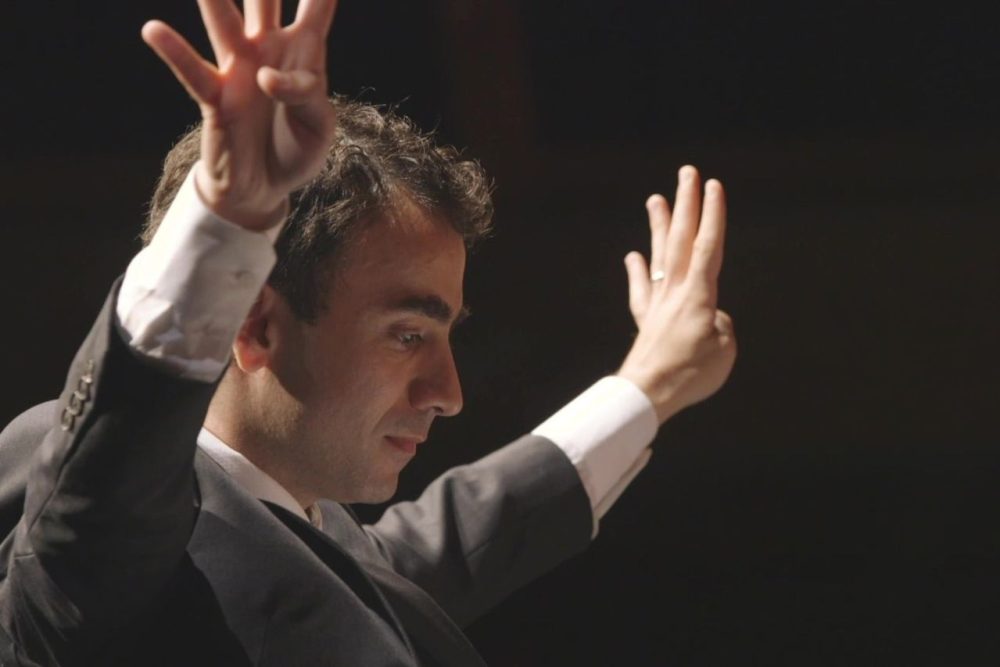
JAMES STRECKER: Please tell us about a creation of yours featured at this year’s Toronto Summer Music Festival. Why exactly does it matter to you and why should it matter to your listeners?
IMAN HABIBI: Relics is a collection of memories from my childhood years in Iran. From the fear of imminent bombings during the Iran-Iraq war to the gentle breeze near the vast beaches of the Caspian Sea where my family often went for vacation, each movement tells a deeply personal story of my childhood. It was originally written for two of my dear friends, Melissa Reardon and Raman Ramakrishnan through the Gabriela Lena Frank Creative Academy of Music.
JS: What are the most important parts of yourself that you put into your creations?
IH: In my music, I am often a storyteller, a cultural worker and ambassador. I feel a responsibility to speak to the most pressing issues of our time. Naturally, my identity and lived experiences are important elements of my work.
JS: What causes you to compose or create as you do? Is it because you play a specific instrument, for instance?
IH: My approach to music-making varies from composition to composition, based on the needs of the music, and my own mindset at the time. Each new composition feels like a journey of discovery into an unknown part of myself. My familiarity with craft, certain instruments or other technological means allow me to express myself more easily, and while they may inform my process, I don’t think they determine my approach to composition.
JS: What are your biggest challenges as a creative person?
IH: There are too many to list, but I struggle most with the existing hurdles to change and evolution in this fragile ecosystem we call “classical music,” which can, at times, be quite set in its ways. I am, however, optimistic for change on that front.
JS: What are the hardest things for an outsider to understand about your life as a person working in the arts?
IH: This may be better answered by the outsiders.
JS: Let’s talk about the state of the arts in today’s society, including the forms in which you create. What specifically gives you hope and what specifically do you find depressing?
IH: I am heartened to witness the richness of music being created by many of my colleagues, and to see instances of genuine commitment to diversifying and expanding our musical horizons. I am heartened by the awareness and sense of citizenship (in arts and society) that I see among the new generation of artists entering the field. I am most disheartened by instances of abuse of power and influence in its various forms, which many of us experienced and are still sadly rampant in our field, or by tokenism or unjust treatment of artists.
JS: What new works are you working on at present?
IH: I just finished three works which were premiered over the past two weeks: Zhiân, a 13-minute orchestral piece premiered a few days ago by Boston Symphony Orchestra, Offering of Water, an 11-minute piece for violin and piano that I premiered last week at Tanglewood with violinist Lucia Lin, and the string orchestra arrangement of Beloved of the Sky, which was premiered at Chelsea Music Festival in late June in New York. Over the next few months, I am looking forward to working on several chamber projects, including a piano trio for my friends Hyeyung Yoon and Gregory Beaver, a solo piano work for a consortium of pianists, a piece for saxophone and piano commissioned by Timothy McAllister, a song cycle for countertenor and piano for my friend César Aguilar, and looking further into the future, a violin concerto for Nikki Chooi, which we are in the early stages of planning. My piano duo ensemble, Piano Pinnacle, also has two ongoing projects, including our debut album, which we are hoping to record next year.
JS: What do you yourself like about the music you create?
IH: The sense of community that a piece of music is sometimes able to create and the shared journey it can allow us to experience are incredibly meaningful to me. I love making music with my dearest friends, and I love forming new friendships through music. Any instances in which my music was able to accomplish that successfully made that piece of music more meaningful and special to me also.
